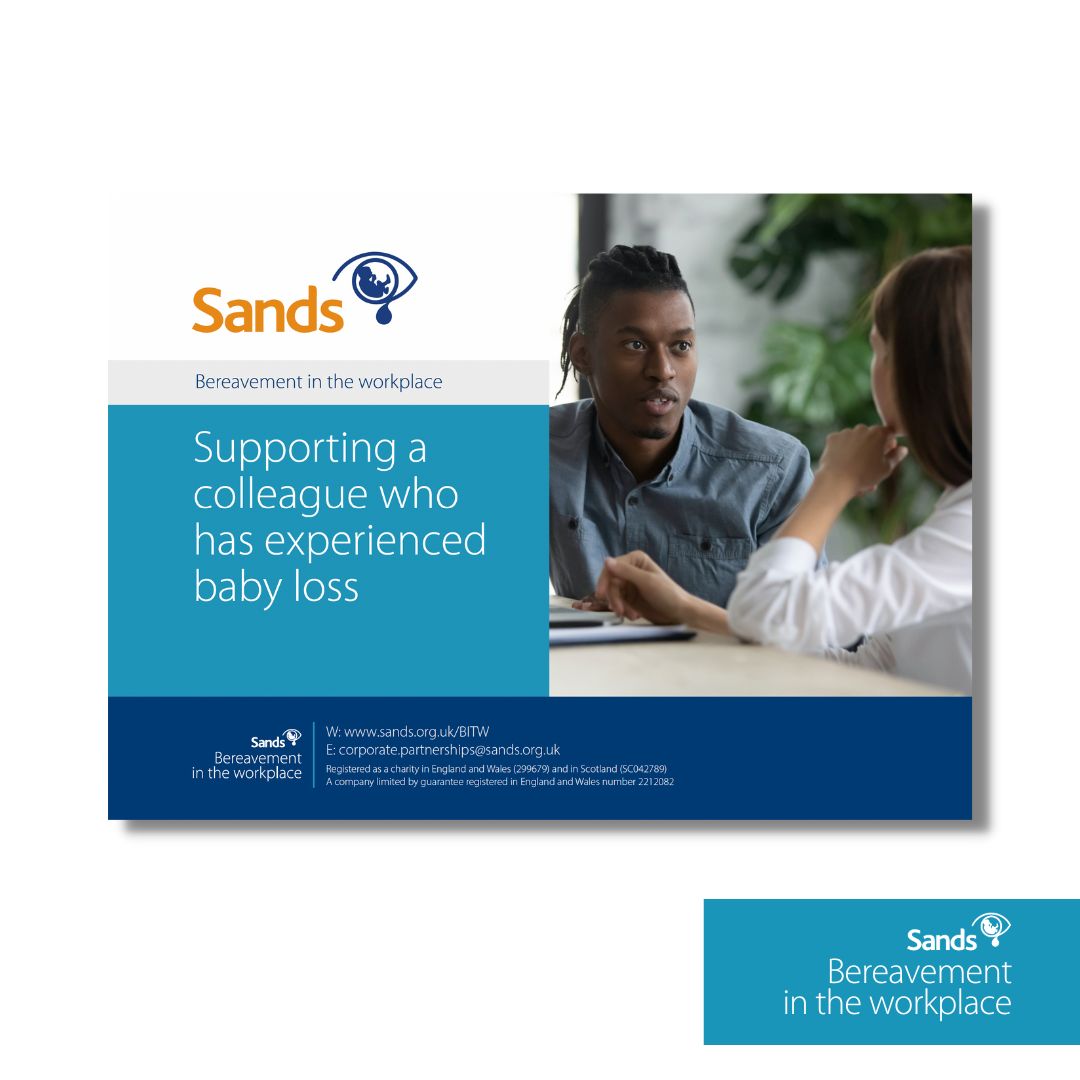Most people will know someone who has been through pregnancy loss or the death of a baby, but you might not always know that you know. It might seem to be a very specialised or minority area of concern, but that’s probably because we don’t talk about it much as a society, despite the fact that currently in the UK 13 families a day suffer the heartbreak of losing their baby before, during or shortly after their birth and at least 15% of all pregnancies end in miscarriage.
One of the effects of this not being spoken about can be to make those who have been through such a difficult experience feel even more isolated and alone. Grief needs to be processed, and if it is perceived as something to be hidden, that can’t happen. That’s why it is so important to be open about pregnancy and baby loss, to create an environment which supports colleagues who have been through it, or who may do in the future.
As people leaders we often value being ‘solutions focused’. Bereavement can challenge us because there is no solution or fix: we want to help but can feel powerless because we cannot do the one thing that the bereaved person wants, and bring back the person they love. We may also feel uncomfortable or out of our depth if we don’t know what to say or are worried about causing offence.
The sense of wanting to ‘do’ something can apply as much to the bereaved person as to those around them. Alongside financial pressures, it can be a reason why some people return to work very quickly, perhaps before they are ready, so that they can feel busy and productive and push away difficult emotions or thoughts. Not everyone feels like that, though, and others may find that the impact of pregnancy loss or the death of a baby makes even everyday tasks a struggle, and the thought of returning to work can create anxiety.
The scale of pregnancy and baby loss is vast, as is the impact on bereaved parents. A report, Out of Sight, Out of Mind, published by the Baby Loss Alliance, reveals that 60% of bereaved parents surveyed felt they needed specialist psychological support for their mental health. As many as 70% reported clinically significant grief-related depressive symptoms with 1 in 3 bereaved women showing PTSD even up to 15 years after the death of their baby.
Of course, everyone is different, and this is why being person-centred is so important. When interacting with a bereaved colleague, by far the best approach is to ask them how they are and what they need. Sometimes people leaders feel that they should research how different cultures or faith groups respond to pregnancy loss or the death of a baby. This can be helpful as background information, but there can also be a lot of variation between different people within one culture or faith group, so it is better to ask than to assume or stereotype. No one will be offended by questions which are appropriately curious and asked supportively, for example about funeral arrangements or what support networks a person has. Even within the same family, different people can respond to bereavement in very different ways, and so again, we need to be mindful of how we support partners or parents of people who experience pregnancy or baby loss and show interest in their wellbeing rather than focus solely on the person who has been pregnant.
As a society, and particularly in healthcare settings, we have moved on from the experience of previous generations. We understand now how important it is for parents to spend time with their baby if they can, and to make memories in a way which would have been discouraged fifty years ago. Bereavement through pregnancy and baby loss has distinctive elements which are different from many other circumstances because what is grieved is a future which can’t happen, rather than a past which has. It can also profoundly affect a bereaved person’s sense of identity and self-worth.
There is still a long way to go, but as people leaders we can make a difference. It sounds simple, but it works: if we talk about bereavement openly, we reduce isolation and improve mental health and wellbeing. It doesn’t mean that every colleague who goes through a bereavement will want to talk, but they will know that they can if they need to. And we also make it easier for them to seek support, either within the workplace or outside it. And if we listen to our bereaved colleagues, and focus on them as individuals, we will be best able to help them rebuild.
training.sands.org.uk
All figures, unless otherwise stated, are from YouGov Plc. Total sample size was 2121 adults. Fieldwork was undertaken between 14th – 15th August 2023. The survey was carried out online. The figures have been weighted and are representative of all UK adults (aged 18+).









